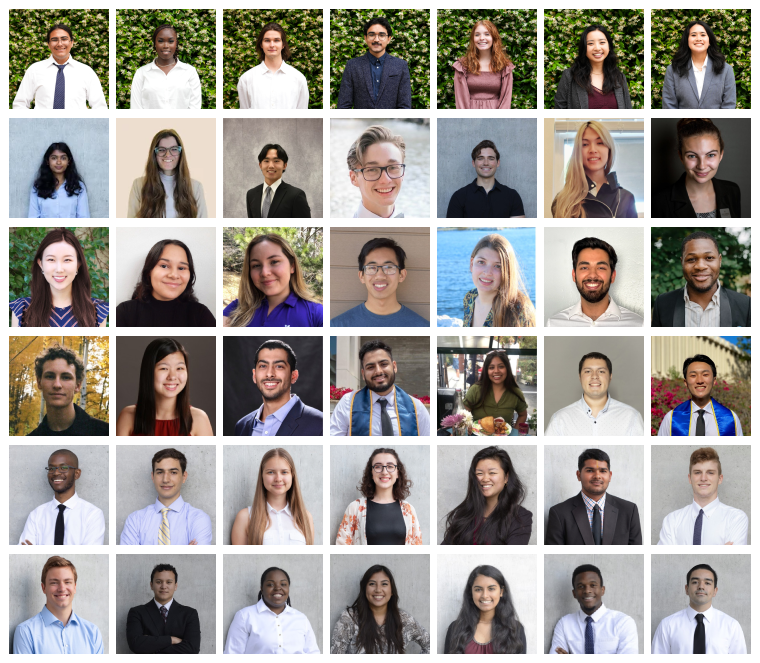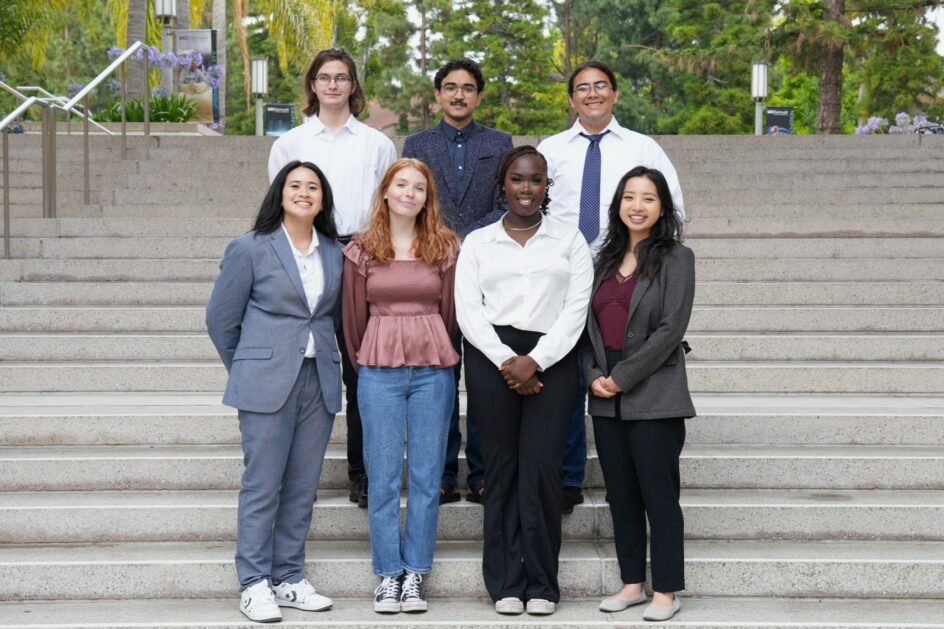Building Diversity and IoT Expertise into Next-Gen Tech Leaders

“I cannot picture how different my education and undergraduate experience would have been had I not done the program,” says UC Irvine senior Yocelyne Hernandez, referring to the IoT-SITY REU program. “It was that significant.”
Hernandez, a computer science major in UCI’s Donald Bren School of Information and Computer Sciences (ICS), credits the eight-week summer research program for setting her up for academic success. She participated in 2019 as a MiraCosta community college student, using Raspberry Pi to assemble an Internet of Things (IoT) security camera and programing features such as motion detection and facial recognition. “I met life-long friends, explored research interests, and learned about how to apply to graduate school. I got my first exposure to writing an academic paper and presenting an academic poster,” she says. “I had everything I needed to succeed.”

The IoT-SITY Program
The program started out as a proposal, called “Cultivating the IoT-enabled Smart Community” (IoT-SITY), which aimed to set up a National Science Foundation (NSF) Research Experiences for Undergraduates (REU) site at UCI. Led by ICS Computer Science Professor Nalini Venkatasubramanian, the site was established in 2017, and that summer, nine undergraduate students from across the nation spent eight weeks at UCI.
“Participating in the REU site at UCI was an eye-opening experience for me as an undergraduate student,” says Sharika Hegde, a member of that first cohort and a civil engineering student at Carnegie Mellon University at the time. “The collaborative and enriching environment fostered by the program allowed me to meet and work with a diverse cohort of students from across the nation. This experience not only broadened my perspective, but also provided me a glimpse into how cutting-edge research in computer science and engineering is conducted.”

That summer, Hegde conducted research on the effects of AI and data availability on parking lot efficiency, which led to her current graduate studies path. “The program ignited my interest in pursuing advanced studies,” she says, “ultimately leading me to a Ph.D. journey in transportation systems at Northwestern University!”
Since that first cohort in 2017, a total of 54 undergraduates from 35 institutions have participated. The students, like Hegde, spent their summer working on cutting-edge projects with faculty and students from ICS and the Samueli School of Engineering, advancing multidisciplinary IoT research for smart communities in areas ranging from public safety to transportation to exergaming.
Supporting Diversity in Tech
The program is a collaborative effort with support from UCI’s Summer Undergraduate Research Fellowship (SURF) program and the ICS Office of Outreach, Access and Inclusion (OAI). The majority of participants are first-generation college students from diverse backgrounds, with limited research opportunities.
The IoT-SITY research projects are multidisciplinary, involving a wide variety of campus organizations, such as the Center for Emergency Response Technologies (CERT), the Institute of Transportation Studies (ITS), and Water UCI, as well as the School of Medicine.
“The IoT-SITY Program plays a critical role in advancing OAI’s goal of recruiting, retaining and graduating underrepresented graduate students,” says Vinh Luong, Assistant Director of OAI. “It allows the office to connect with talented students from Minority Serving Institutions (MSI), Hispanic Serving Institutions (HSI), and Historically Black Colleges & Universities (HBCU) nationwide. The program provides students with valuable research experience, graduate school preparation and a supportive community.”

Invaluable Research Experience
“The staff, professors and directors were all so welcoming and inspiring,” says Hernandez, who worked with Professor Ian Harris on research to combat Denial of Service (DoS) attacks against IoT security cameras. She transferred to UCI in 2021 and plans to graduate in December and work in industry.

Modeste Kenne, currently a fourth-year Ph.D. student in ICS, also participated in the program in 2019 when he was a senior at Iowa State University. He worked with Ph.D. student Nailah Alhassoun and Professor Venkatasubramanian on a project titled, “Smart Mini Assisted Living Environment,” integrating motion and acoustic sensors into a fall-detection smart carpet for older adults.
“Working with a graduate student whose work was related to what I wanted to do gave me insights into what graduate school is like,” says Kenne, who is now working with Venkatasubramanian on disaster resilience in senior health care. “The IoT-SITY program had a great impact on my academic journey, as it provided me with hands-on research experience.”
Kenne also stresses how the program offered a good balance of academic learning and extracurricular activities. “I not only learned how to use a Raspberry Pi for my research project, but we also worked in teams to program race cars for a side-project competition, and they threw in some fun activities such as visiting the beach. They made learning tools and technologies fun.”
Next-Gen IoT Leaders
During the summer of 2023, nine students participated in the program, working on projects ranging from a Smart Water Data Exchange to a Testbed for IoT-based Privacy-Preserving Pervasive Spaces.
Ilana Nguyen, a second-year computer science student at Brown University, worked on building a deep learning classification model for fall risk assessment. “We used a large language model called Bio-Clinical BERT and then we trained it on free-form nurses’ notes, which we labeled as high, medium or low fall risk,” says Nguyen. “We tested it … and the model did pretty well. It had around 86% accuracy on unseen data.”

Anaya, Ilana Nguyen, Rebecca Agyapong, Jayci Wimmer and Isabella Villarente (not pictured: Justin
Chen and Celeste Penney).
Nguyen had the opportunity to present the work at the MIT Undergraduate Research Technology Conference (MIT URTC) in October. She continues to collaborate with UCI researchers and hopes the model can help automate the process of identifying high-risk patients so that clinicians and caregivers can recommend interventions.
“I didn’t have any formal research experience before doing the program, so this was really a deep dive,” says Nguyen. “But I had so much support. I really appreciated Professor Nalini’s time, as well as guidance from my mentor, Rahul. I learned a lot from them [and] from having this dedicated space to fully immerse yourself in research.”
Such immersion in IoT research is greatly needed. By 2030, the number of connected IoT devices is expected to reach almost 30 billion. “We are grateful to the National Science Foundation for their support and encouragement over the years,” says Venkatasubramanian, who serves as director of IoT-SITY. “This program is uniquely positioned to train a diverse group of next-generation scientists who have the expertise needed to manage and navigate this emerging world of data and devices for the benefit of society.”
— Shani Murray